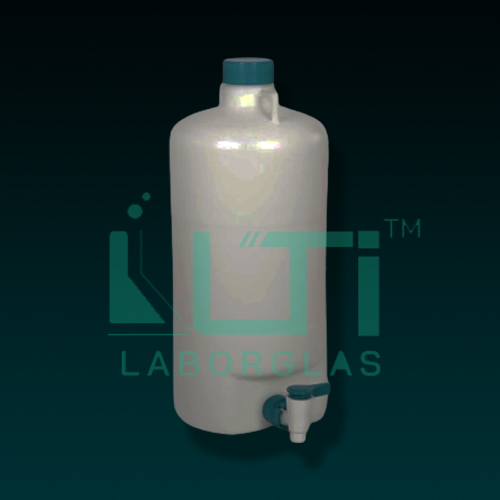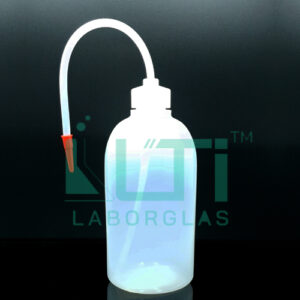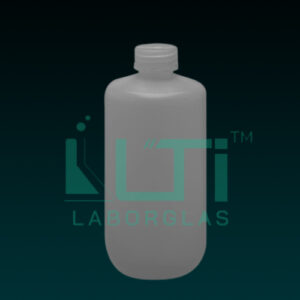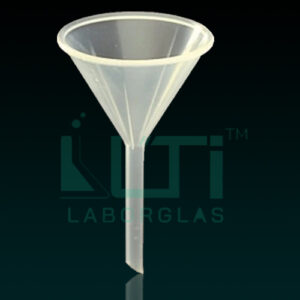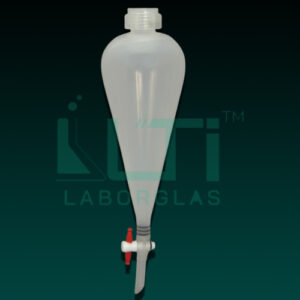Made of Polypropylene and are therefore much lighter than glass
• These are autoclavable, durable & dependable
• The leak proof spigot screwed to the bottle body requires only a half turn to open or close
• These bottles are used for storing or dispensing distilled water & other laboratory solutions
• Threads should be totally disengage before autoclaving
| PART No. | Capacity (ltr) | PACK Qty. |
| 5200-2 | 2 | 1 |
| 5200-6 | 6 | 1 |
| 5200-10 | 10 | 1 |
| 5200-20 | 20 | 1 |
Uses:
- Vacuum Filtration:
- Aspirator bottles are widely used in vacuum filtration setups. A vacuum is applied to the bottle through the tubulation, creating suction that pulls liquids through a filter membrane, separating solids from liquids.
- Liquid Aspiration:
- They are used for aspirating or removing liquids from containers, reaction vessels, or other equipment. This is particularly useful in laboratories when transferring liquids without direct pouring.
- Disposal of Liquid Waste:
- Aspirator bottles serve as containers for collecting liquid waste in laboratories. They can be used for temporary storage before proper disposal, reducing the risk of spills or contamination.
- Cell Culture and Media Handling:
- In cell culture laboratories, aspirator bottles may be used for handling and aspirating cell culture media, reagents, or other liquids in a controlled manner.
- Chemical Transfer:
- Aspirator bottles are suitable for the transfer of chemicals from one container to another, especially when a controlled and measured dispensing is required.
- Autoclaving:
- Many aspirator bottles are designed to withstand autoclaving, allowing for sterilization and reuse in a sterile laboratory environment.
- Chemical Storage:
- Some aspirator bottles are used for storing chemicals, solutions, or media, providing a convenient and secure container for laboratory storage.
- Environmental Sampling:
- In environmental monitoring, aspirator bottles may be used for collecting liquid samples from water bodies or other environmental sources for subsequent analysis.

